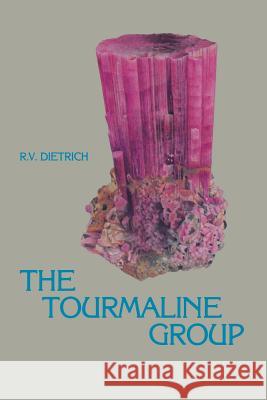The Tourmaline Group » książka
The Tourmaline Group
ISBN-13: 9781468480870 / Angielski / Miękka / 2012 / 302 str.
Tourmaline group minerals have graced the cabinets of mineral collectors and museums for untold generations. Their colors and color patterns, along with their diverse shapes and associations, have assured their role as exqui- site showpieces. Their workability and durability have, in addition, made them favorites among connoisseurs of colored gemstones. Tourmalines, however, are much more than exquisite showpieces and beautiful gemstones. Their diverse crystal forms and unique structure, their variable chemical compositions, their intriguing physical properties, and their widespread occurrence in nearly all kinds of rocks have long attracted the attention of scientists from several disciplines. Furthermore, they have several potential uses in science and industry. From an historical standpoint: Tourmaline is possibly the "Lyngurium" -green at one end, light colored at the other-that Theophrastus (ca.315 B.C.) described in On Stones, the first known book about minerals. Tourma- line is one of the minerals thought to have been used as a "sunstone" navigation compass by Vikings during the eighth, ninth, and tenth centuries.











